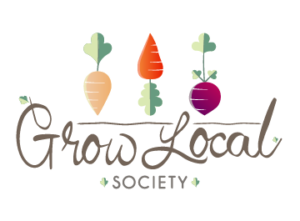Here at the Coquitlam Farmers Market we are all about local, seasonal and sustainably grown produce. What better way to celebrate the summer months than a fresh take on some familiar foods! This week’s topic: butternut squash.
 Did You Know?
Did You Know?
Butternut squash is one of the most popular winter squashes? Did you know one butternut squash generally contains 354% of your daily need for Vitamin A- that is more than a pumpkin!
This low calorie squash has many vital poly-phenolic anti-oxidants and vitamins. Just one serving has only 45 calories! Make sure you stop by the market this Sunday to try some of the province’s best!
Recipe of the Week
Roasted Squash with Cherry Tomatoes and Eggs
Courtesy of MARTHA STEWART LIVING
Ingredients:
2 small butternut or acorn squashes (no larger than 1 1/4 to 1 1/2 pounds each), halved lengthwise and seeded
2 tablespoons extra-virgin olive oil
Kosher salt and freshly ground pepper
1 teaspoon fresh thyme leaves, plus 6 sprigs
2 cups cherry tomatoes (11 ounces), stem-on, if desired
2 teaspoons chile paste, such as sambal oelek, plus more for serving
4 large eggs
Directions:
Step 1- Preheat oven to 425 degrees with racks in upper and lower thirds. Line 2 baking sheets with foil. Rub squashes all over with 1 tablespoon oil. Season with salt and thyme leaves, then place, cut-sides down, on a baking sheet. Add thyme sprigs. Place on upper rack; roast 10 minutes.
Step 2- Meanwhile, toss tomatoes in remaining 1 tablespoon oil; season with salt. Spread on second sheet in a single layer. Place on lower rack; roast until tomatoes are beginning to collapse and squashes are tender, 20 to 25 minutes more.
Step 3- Remove tomatoes. Turn squashes cut-sides up and roast 5 minutes more. If hollows in squashes are large enough, spoon a tomato or two into each. Spoon 1/2 teaspoon chile paste into each hollow, then crack an egg into each; season with salt.
Step 4- Bake until whites are set but still a bit wobbly and yolks are soft, 12 to 15 minutes. (Start checking for doneness at early end of range, removing squashes with cooked eggs as they’re done.)
Step 5- Let stand 3 minutes, then serve, with more chile paste and roasted tomatoes, and seasoned with pepper.
Ingredients at the Market
Butternut squash: Forstbauer Family Farm, Langley Organic Growers, Red Barn Plants and Produce
Thyme: Red Barn Plants and Produce
Cherry tomatoes: Ripple Creek Farm, Red Barn Plants and Produce, Never Say Die Farm
Butter: Golden Ears Cheescrafters
Eggs: Rockweld Farm, Central Park Farm
Other Greens and Vegetables: Floralia Growers, Forstbauer Farms, Langley Organic Growers, Never Say Die Farm, Ripple Creek Organic Farm, Shen’s Farm, Wah Fung Farm
Steps on How To Grow
Butternut Squash Planting 101:
Step 1- Make sure you are not planting during cooler months. Butternut squash seeds are very susceptible to frost so ensure your soil is warm for germination.
Step 2- Since it is a vining vegetable, plant your seeds in soil that is on an incline (generally a hill and at about 18 inches high).
Step 3- Make sure your soil has plenty of nutrients because butternut squash are heavy feeders. This may require organic fertilizer.
Step 4- Plant five or six seeds per hill about four inches apart and one inch deep. Water regularly but ensure the ground is not soggy.
Step 5- After about ten days, the seeds will sprout. When they’re about six inches high, thin out the weakest leaving three plants per hill.
Note: Fruit maturation for this plant is about three to four months so if your growing season is short, it is recommended that you begin growing indoors.
Step 6- If planting indoors, make sure you have nutrient rich soil and place your pot in either a sunny window or greenhouse. Transplant to the garden after all danger of frost is past.
Note: Harden off the seedlings before transplanting.
Step 7- When cultivating your crop, make sure not to push down too deep because this squashs’ roots are shallow. Harvest when the skin turns hard and is difficult to pierce with your thumbnail.
Butternut Squash in B.C.
It is reported that the origin of butternut squash began around 1940 in Massachusetts. Despite this early beginning, squash in general have been eaten for hundreds of years!
While Quebec and Ontario are the two main squash producers in Canada, B.C. has dozens of farmers who produce seasonally. Interest in squash has been on the rise in recent decades but it still has low commercial value for the country.
Did you know there are now more than 6,500 hectares of land planted with squash every year worth more than $40 million?
